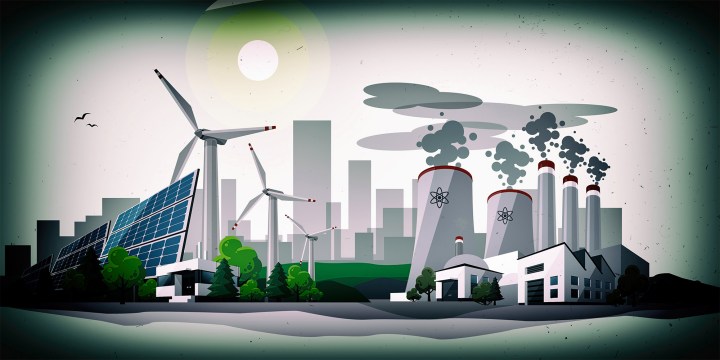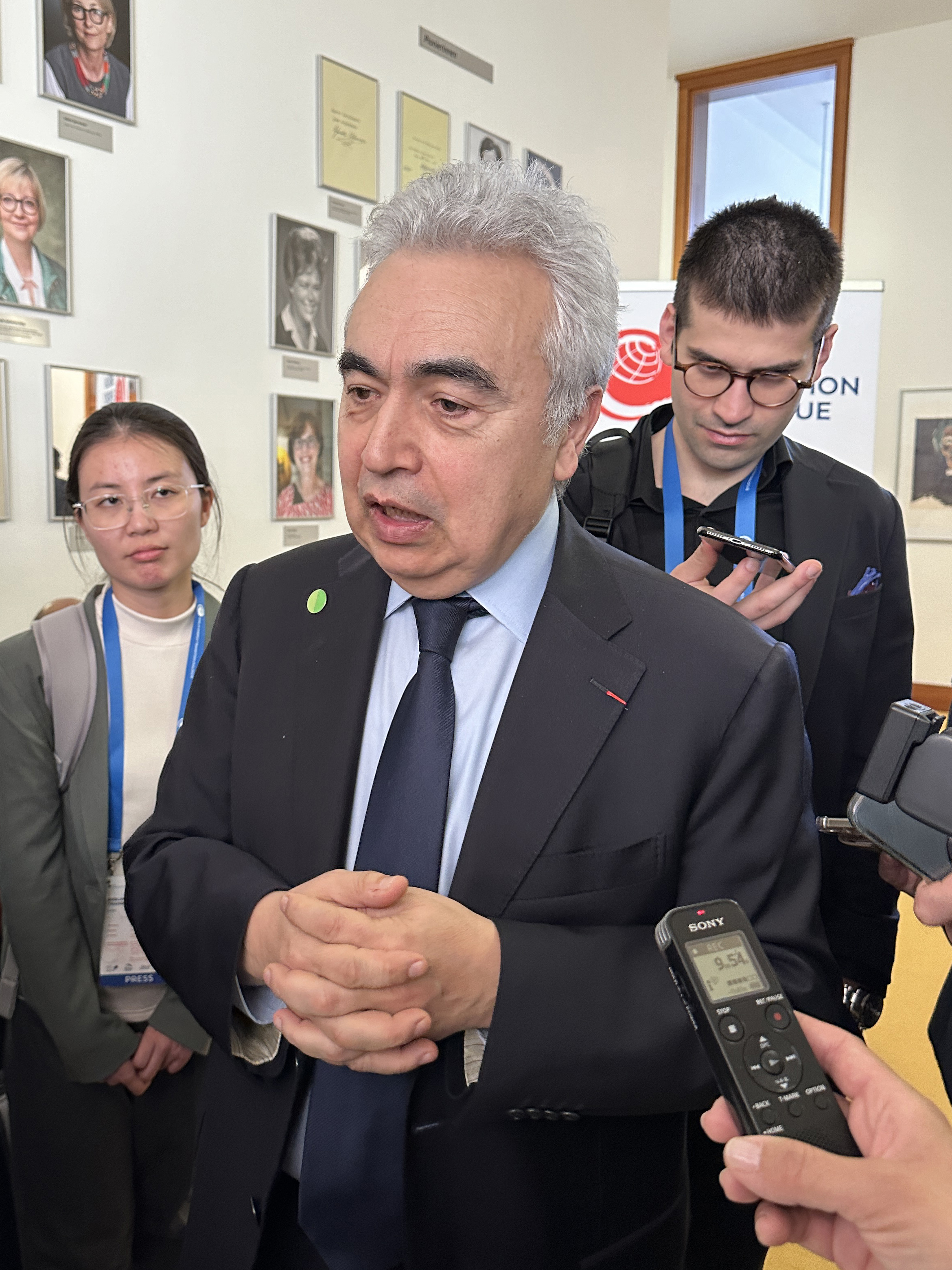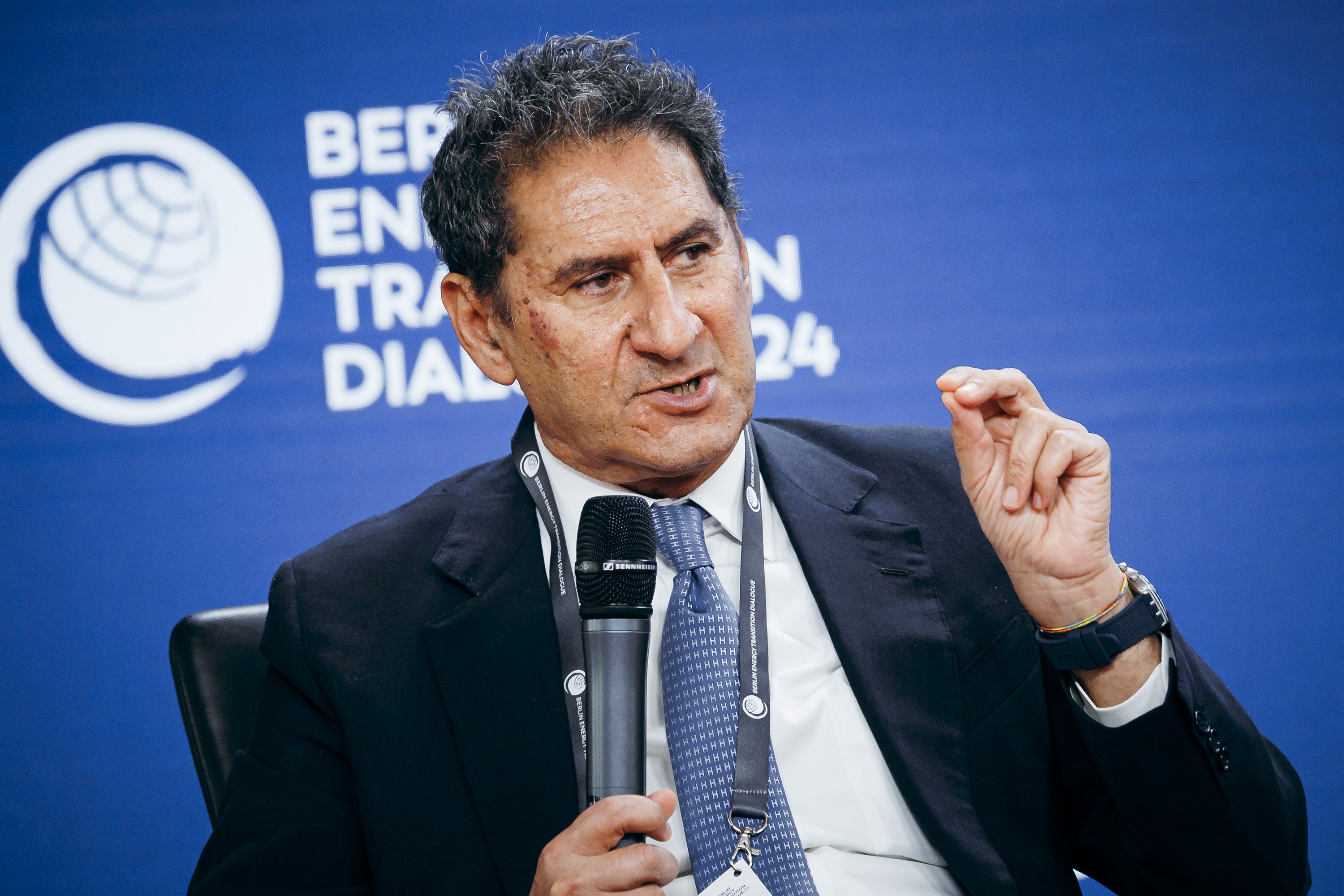FUNDING FOR RENEWABLES
Climate finance key to just energy transition in developing countries — IEA chief

IEA head Dr Fatih Birol says ‘not having enough finance for the clean energy transition in developing and emerging countries’ is delaying the transition.
‘To limit global warming to 1.5°C above pre-industrial levels, emissions should already be decreasing and need to be cut by almost half by 2030. Although this target is just six years away, fossil fuels experienced continued demand and revenue growth in 2023.”
So said the deputy minister of finance, Dr David Masondo, at the Southern Africa Towards Inclusive Economic Development (SA-Tied) policy dialogue on infrastructure investment on 18 March.
Masondo said that in South Africa, “We feel the negative impact of climate change in important sectors such as agriculture, water and energy. The frequency of natural disasters and the results thereof are felt every day in our country.
“Investments in renewable energy sources, water conservation systems and sustainable urban development are key to mitigating and adapting to climate impacts. The fiscus cannot afford to financially support the amount of investment required for climate-resilient infrastructure.”
Masondo noted that “Africa needs an annual investment of about $190-billion for its clean energy transition” and that “57% of African countries spend more on debt than on education”.
Read more in Daily Maverick: SA’s energy revolution — we’d better put plans into action… fast, expert warns
His sentiments were echoed by high-level officials and attendees of the 10th annual Berlin Energy Transition Dialogue (BETD).
Speaking to the media on the sidelines of last week’s BETD, Dr Fatih Birol, the executive director of the International Energy Agency (IEA), shared his belief that finance — specifically climate finance — would be the most critical enabler of the global energy transition and the world’s attempts to preserve an inhabitable planet.

Executive Director of the International Energy Agency Dr Fatih Birol. (Photo: Ethan van Diemen)
He said the global appetite for coal was declining. “Of course, it cannot happen from one day to the other, but in general, we do expect fossil fuels to reach their peak before 2030, in this decade.”
Despite this, the world is still not on track to avoid the worst climate impacts, one reason being that global emissions are not decreasing quickly enough.
Read more in Daily Maverick: New UN report (once again) warns that the world is well behind emission targets
“If you ask me whether or not the world is on course, we are not on course,” said Birol. “But there are some encouraging facts.
“The energy transition is moving very fast in many advanced economies, in Europe, in North America, Japan … and China is by far the leader. China is today the champion of clean energy transition around the world. China is number one in solar, number one in wind, number one in electric cars, and so on and so on.”
“So the problem is how we are going to accelerate the clean energy transition in the developing world. In the rest of Asia, in Africa, Latin America, the main, the whole line of all of this problem is not having enough finance for the clean energy transition in developing and emerging countries. So, for me, the key issue is how we are going to create mechanisms in order to facilitate the financing in these countries.”
The IEA boss said that the next Conferences of the Parties, COP29, to be held in Baku, Azerbaijan, later this year, should focus on finance.
Read more in Daily Maverick: What happened to the Just Energy Transition grant funding?
“At COP28 in Dubai, we suggested five major issues to be agreed upon, four of them already agreed. We said, triple renewable capacity by 2030 — agreed. Doubling of energy efficiency — agreed. Deep reductions of methane emissions — agreed. And we said governments need to give a clear signal for the moving out of fossil fuels, and this one is more or less agreed.
“But this one — creating financial mechanisms to help the developing countries — this is not yet done and I very much hope this will be addressed in Baku [Azerbaijan, where COP29 will be held later this year] and then in Brazil [the host country of Cop30 in 2025].”
Asked what developing countries should do to accelerate their transitions in the context of a weaker financial environment, Birol said, “I think there are many countries whose economies are indexed to the oil and gas sector, oil and gas revenues. If I were them, I would start to diversify my economy because the clean energy transition is happening and happening very fast.
Accelerating investment
The International Renewable Energy Agency (Irena) is an intergovernmental organisation supporting countries in their transition to sustainable energy. Francesco la Camera, the director-general of the agency, shared some of his thoughts on the matter in a statement ahead of the BETD.
“In the wake of the historic UAE Consensus on tripling renewables at COP28, these capacity additions — despite setting a new record — clearly indicate that achieving the target is far from guaranteed.

Director-general of the International Renewable Energy Agency Francesco la Camera. (Photo: Florian Gaertner / photothek.de)
“As the custodian agency, Irena monitors related progress across key indicators every year. Our data confirms that progress continues to fall short, and the energy transition remains off track. We urgently need a systemic shift away from fossil fuels to course-correct and keep the tripling goal within reach.”
A new report by Irena, Tracking COP28 outcomes: Tripling renewable power capacity by 2030, highlights that 2023 set a new record in renewable deployment, adding 473 gigawatts (GW) to the global energy mix. It also concludes that tripling renewable power capacity depends on overcoming systemic and structural barriers to the energy transition.
An average of almost 1,100GW of renewables capacity must be installed annually by 2030 — more than double the record set in 2023. Annual investments in renewable power generation must surge from $570-billion in 2023 to $1.55-trillion on average between 2024 and 2030.
The report notes that accelerated investments in infrastructure and system operations such as power grids and storage, revised policies and regulations such as streamlined permitting, measures to fortify supply chains and cultivate requisite skills, and substantial increases in investments — including public funds facilitated through international collaboration — are imperative.
“Despite considerable renewable potential, developing countries have received disproportionately low levels of investment.
“Although energy transition-related investments have reached a record high, exceeding $2-trillion in 2023, emerging markets and developing economies accounted for just over half of global investments.”
The report says, “120 developing nations attracted only 15% of global renewable investment, with sub-Saharan Africa receiving less than 1.5%, despite being home to the highest share of energy-deprived populations.
“In contrast, fossil fuels received $1.3-trillion in subsidies in 2022, equivalent to the annual investment required in renewable generation capacity to achieve a threefold increase by 2030.”
Read more in Daily Maverick: Details of SA’s Climate Change Response Fund remain sketchy
Speaking to journalists at the Federal Foreign Office in Berlin, La Camera explained that the money to make the transition was already there, it was just being misused.
“The money is always there. The question is how to use the money. We are using $1-trillion to subsidise fossil fuels — why don’t we use $1-trillion to subsidise renewables and hydrogen?”
He spoke about COP29: “The reality is detached from the commitment. I have said that we can be happy that we set a new record for renewable installed capacity or you can be unhappy that it was less than half what was needed. We hope the COP will be a path to reality. They also have to agree on another financial commitment after the $100-billion, they need to create another goal.”
Upfront costs
In another room in the German Federal Foreign Office on 19 March, members of the Global Renewables Alliance (GRA) launched their “Time 4 Action” campaign, urging that $10-trillion in public and private investments be mobilised and that policy frameworks paving the way to reach 11,000GW of renewables by 2030 be established.
Sonia Dunlop, the CEO of the Global Solar Council and vice-chair of the GRA, told this reporter: “Finance is the number one challenge for getting to the renewables target by 2030. We are saying we need $10-trillion of investment into renewables between now and the end of the decade. That sounds like a big number but … the key thing is mobilising the private finance into renewables and mobilising it into the emerging and developing economies.”
She explained that the reason finance was so important for renewables in developing countries — and by extension, the global energy transition — was “because with renewables, almost all your cost is upfront. Almost all your cost is on day zero and then after that, there’s very little operations and maintenance.
“And so because all the cost is up front, because all the cost is capital expenditure rather than long-term operational expenditure, the cost of finance is disproportionately important to us as renewables.
“The source of the energy is free, we don’t have to buy coal or gas or oil. But the equivalent of the beginning is where we have to stump up the cash and because we have to borrow that money from the financial market … and if you’re in a developing country that’s borrowing at a higher rate … it suddenly makes the renewables much more expensive.”
Bruce Douglas, the CEO of the GRA, who was also at the BETD, said that with the obstacles and goals clearly defined, “The industry stands ready to deliver, awaiting policymakers to pave the way. Derisking renewable investments, especially in emerging economies, is now a crucial step to delivering on the global target.
“The Global South is where we must see massive upscaling of renewables deployment in order for the energy transition to be just and equitable; and it needs to happen now.” DM
Disclosure: Ethan van Diemen was in Berlin as a Berlin Energy Transition Dialogue Media Fellow 2024.






















 Become an Insider
Become an Insider
Comments - Please login in order to comment.